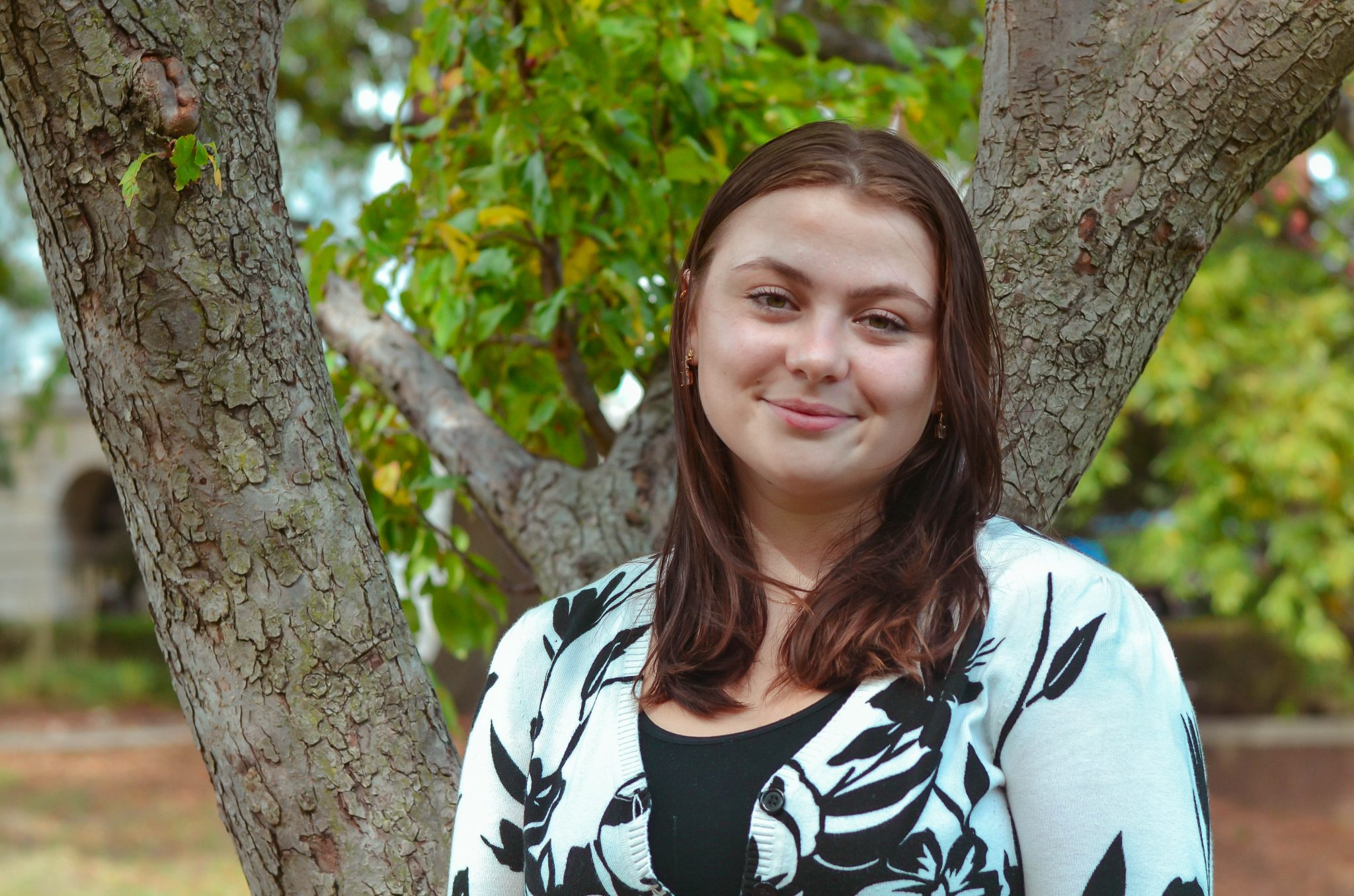When Faina Pensy began her freshman year at the University of Maryland, she hoped her coursework would help her connect with her heritage.
Pensy grew up surrounded by knowledge of her family’s Ukrainian background. Her mother shared the country’s culture and language with her from a young age. Some of her family members fled Ukraine as refugees during the Soviet era while others reside in the country today.
But when Pensy arrived at this university to study communication and government and politics, she felt there were no classes where she could explore her interests.
“Out of all Slavic studies, the only language courses that are covered here are Russian,” Pensy, now a sophomore, said. “That isn’t really representative of our student body.”
After Russia invaded Ukraine in February, students at this university created a Ukrainian Student Association to find community and support in the early days of the war. Pensy joined the association shortly after its creation and began advocating for more Ukrainian courses at this university soon after.
Pensy now serves as the arts and humanities college representative for the Student Government Association, where she has found an avenue to pursue advocacy work. Pensy’s bill for the SGA to create and publish a Ukrainian course interest survey passed during the organization’s general body meeting Oct. 12.
[GSG, TerpsVote partner to increase low graduate student voter turnout]
“For administration, we have to be able to show that people would pay to take these courses,” Pensy explained. “I have to prove that there is public support.”
Once the SGA has data on how many students would be interested in a course on Ukrainian language, culture and history, Pensy and other SGA representatives will present that information to university administrators.
To add a new course at this university, a proposal for it would have to go through a formal review process, which includes a review from the Vice President’s Advisory Committee.
This university is also part of a CourseShare program alongside other universities in the Big Ten Academic Alliance — a collaboration among Big Ten universities that encourages sharing of expertise and programs. The CourseShare program allows students to virtually participate in uncommonly taught courses.
Pensy has been working closely with Aiden Wechsler, the SGA academic affairs director, in the process to add courses at this university.
If there is enough student interest, students at this university could enroll in a Ukrainian language course taught at another Big Ten university, Wechsler said.
In addition to helping Ukrainian students learn more about their heritage, Pensy believes the courses will help non-Ukrainians be more aware of Ukrainian history.
“It’s so important for all students to not just learn about our own culture, but … to learn about the cultures of other countries and other regions,” Wechsler, a junior government and politics major, said.
The first step in Pensy’s process of advocating for a new course on Ukraine was researching how many other Big Ten schools offer Ukrainian courses. According to Pensy, many schools in the conference offer at least one.
[UMD community members with Florida connections reflect on damage from Hurricane Ian]
“This in itself shows that Maryland is kind of lagging,” she said. “We are one out of four that currently are not stepping up to the plate and representing Ukrainian voices and other Slavic voices.”
Ukrainian Student Association President Tetiana Tytko wrote a letter to the administration in support of Ukrainian courses on behalf of the Ukrainian Student Association. She addressed the recent rise in interest in learning about Ukraine and why there is a need for Ukrainian courses. She is also working to get letters from Ukrainian staff members at this university who support the cause.
“We’re here to help whenever [Pensy] needs us, like to promote the survey or to circulate it around campus,” Tytko, a third year second language acquisition doctoral student, said.
Since it was created in March, the Ukrainian Student Association has been working to increase awareness about the war, raise funds in support of Ukraine and host events where people can learn about the nation’s culture.
Of the organization’s 83 members, the majority are Americans with Ukrainian heritage who felt motivated to learn about their background when the war started. Pensy’s initiative to bring Ukrainian coursework to this university is a way to fulfill this desire among interested students, Tytko said.
More students than ever are looking to show support for the country during its war with Russia, which makes it a perfect time to educate others on Ukraine, Tytko added.
“A lot of people know about Ukraine and a lot of people [are following] the news,” Tytko said. “There is a need.”



